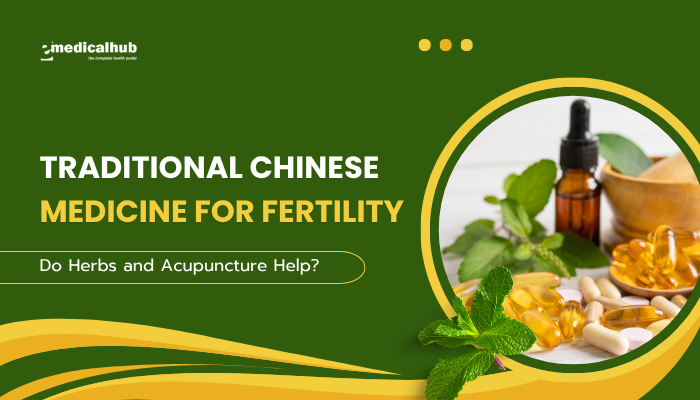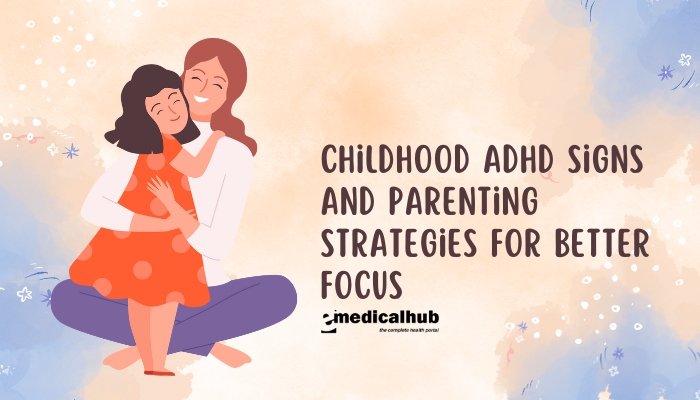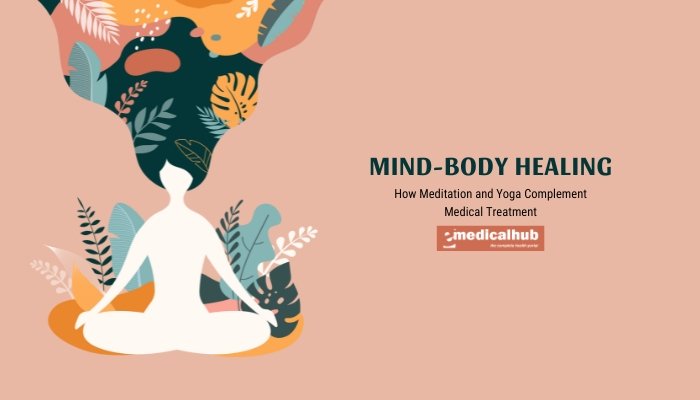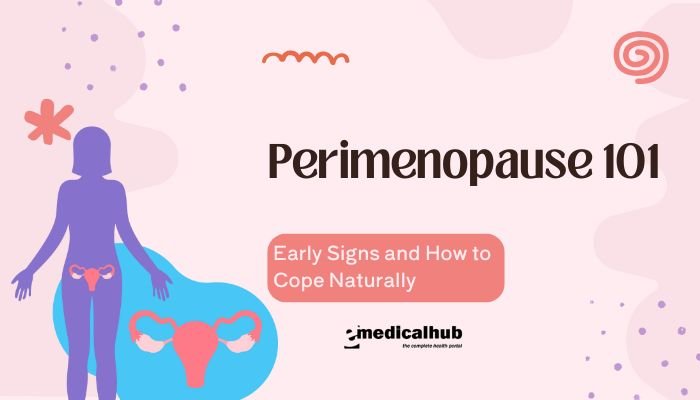Introduction
Fertility challenges affect millions of couples around the globe, prompting a search for treatments that go beyond conventional medicine. In recent years, Traditional Chinese Medicine (TCM) has gained attention as a holistic, integrative approach to enhancing fertility.
Rooted in ancient Chinese philosophies, TCM combines herbal remedies, acupuncture, dietary recommendations, and lifestyle modifications to restore balance and promote overall reproductive health. Advocates claim that TCM can improve hormonal balance, enhance blood flow to reproductive organs, reduce stress, and address conditions such as polycystic ovary syndrome (PCOS) and endometriosis.
But what does the science say about these claims? Can TCM truly support fertility, or is it largely based on tradition and anecdotal evidence? This article delves into the principles of TCM, explores the roles of herbal treatments and acupuncture in fertility enhancement, reviews the current scientific evidence, and provides practical guidance for those considering an integrative approach to fertility.
Disclaimer: This article is intended for general educational purposes and does not replace professional medical advice. If you are experiencing fertility issues or planning to use TCM as part of your treatment, please consult a qualified healthcare provider or certified TCM practitioner.
The Foundations of Traditional Chinese Medicine
Philosophical Underpinnings
At its core, Traditional Chinese Medicine is based on the belief that health is the result of a harmonious balance between body, mind, and the environment. Central concepts include:
- Qi (Chi): The vital energy that flows through the body via pathways called meridians. Disruptions or imbalances in Qi are believed to contribute to illness and dysfunction.
- Yin and Yang: The dual forces representing opposing yet complementary aspects of health. Yin (cool, passive, nourishing) and Yang (warm, active, stimulating) must remain in balance for optimal function.
- The Five Elements: Wood, Fire, Earth, Metal, and Water are used to describe natural phenomena and the interrelationships of body systems. Each element is associated with specific organs and functions.
- Holistic Diagnosis: TCM practitioners assess physical, emotional, and environmental factors to identify imbalances that may be affecting fertility and overall health.
TCM and Reproductive Health
In TCM, fertility is viewed as a reflection of the overall harmony of the body’s systems. Key principles include:
- Blood and Yin Nourishment: Sufficient, high-quality blood and balanced Yin are essential for reproductive health. Deficiencies in these areas are thought to lead to irregular menstrual cycles, low libido, or suboptimal egg and sperm quality.
- Kidney Energy (Jing): The kidneys are considered the root of vitality and reproductive capacity. Weakness in kidney energy is often linked to infertility, decreased sexual function, and premature aging.
- Liver Qi: The liver regulates the smooth flow of Qi and blood. Stagnation in liver Qi can result in conditions such as PCOS and endometriosis, affecting fertility.
Acupuncture and Fertility
Principles of Acupuncture in TCM
Acupuncture involves the insertion of thin, sterile needles into specific points on the body—acupoints—to stimulate the flow of Qi. For fertility, acupuncture is believed to:
- Enhance Blood Flow: Needling specific points may improve circulation in the pelvic region, thereby increasing the delivery of oxygen and nutrients to the ovaries, uterus, and testes.
- Regulate Hormones: Acupuncture may help balance reproductive hormones, which is crucial for ovulation, sperm production, and overall reproductive function.
- Reduce Stress and Anxiety: The calming effect of acupuncture can lower cortisol levels and mitigate the negative impact of stress on reproductive health.
- Restore Balance: By addressing imbalances in Qi and supporting the body’s natural healing processes, acupuncture is thought to create an environment more conducive to conception.
Scientific Evidence on Acupuncture for Fertility
Research into acupuncture for fertility has produced mixed but promising results:
- Ovarian and Uterine Blood Flow: Some studies indicate that acupuncture can improve blood flow to the ovaries and uterus, potentially enhancing egg quality and endometrial receptivity.
- In Vitro Fertilization (IVF) Outcomes: Several clinical trials have explored acupuncture as an adjunct to IVF. Some meta-analyses report improved pregnancy rates when acupuncture is combined with conventional IVF protocols, though findings are not universally consistent.
- Hormonal Regulation: Acupuncture has been observed to modulate levels of reproductive hormones such as estrogen and progesterone, which are vital for successful conception.
While some systematic reviews find benefits in using acupuncture to improve fertility outcomes, others highlight the need for more rigorous, standardized trials to account for variables such as acupoint selection, frequency of treatments, and individual patient differences.
Herbal Remedies for Fertility in TCM
The Role of Herbs
Herbal medicine is a cornerstone of TCM, and many practitioners use herbal formulations to support reproductive health. These remedies aim to balance the body’s energies, strengthen organ systems, and nourish blood and Yin, all of which are critical for fertility.
Commonly Used Herbs
Several herbs are traditionally used to enhance fertility:
- Dong Quai (Angelica sinensis): Often called “female ginseng,” it is believed to improve blood circulation and balance female hormones, making it popular for menstrual irregularities and supporting overall reproductive health.
- Tribulus Terrestris: Traditionally used for both men and women, this herb is thought to support reproductive hormones and improve sexual function.
- Chinese Peony (Paeonia lactiflora): Used to alleviate menstrual pain and promote blood flow, it is often combined with other herbs to address conditions such as endometriosis.
- Ashwagandha (Withania somnifera): Although more commonly associated with Ayurvedic medicine, ashwagandha is sometimes used in TCM-inspired practices for its adaptogenic properties, which help reduce stress—a known factor in fertility issues.
- Shatavari (Asparagus racemosus): Traditionally used in Ayurvedic medicine but also recognized in integrative practices, Shatavari supports female reproductive health and is believed to balance hormones and enhance fertility.
- Rehmannia (Rehmannia glutinosa): This herb is used to nourish kidney energy, a key component of reproductive vitality in TCM.
Preparation and Administration
Herbal remedies are typically administered in various forms:
- Decoctions and Teas: Boiling herbs in water to create a concentrated drink.
- Tinctures: Alcohol-based extracts that allow for easier dosage and absorption.
- Capsules/Tablets: For convenience and consistency in dosing.
- Topical Applications: Sometimes, herbal oils are used for massage to improve circulation in the pelvic area.
The specific formulation and dosage depend on the individual’s dosha, the underlying cause of fertility issues, and the practitioner’s assessment.
Scientific Evidence on Herbal Remedies for Fertility
Clinical Trials and Reviews
The scientific investigation of herbal remedies for fertility is an evolving field:
- Mixed Results: Some randomized controlled trials (RCTs) have demonstrated improvements in menstrual regularity, increased ovarian blood flow, and enhanced hormonal balance with certain herbal formulations, particularly in women with conditions like PCOS.
- Meta-Analyses: Systematic reviews of herbal treatments often reveal promising results, but variations in study design, herbal quality, and patient populations lead to inconsistent findings.
- Animal Studies: Preclinical research on herbal remedies such as Dong Quai and Chinese Peony has shown potential benefits in improving reproductive function and hormonal balance, though translating these findings to human populations requires further study.
Mechanisms of Action
Herbal remedies may work through several biological pathways:
- Improving Circulation: Many herbs are believed to enhance blood flow to the reproductive organs, facilitating nutrient delivery and waste removal.
- Hormonal Modulation: Certain herbs can influence the endocrine system, helping to balance hormones necessary for ovulation and sperm production.
- Anti-inflammatory Effects: Reducing systemic inflammation can improve the overall environment for conception.
- Stress Reduction: Adaptogenic herbs help lower cortisol levels, which may improve reproductive outcomes by mitigating stress-related disruptions in hormonal balance.
While these mechanisms are supported by traditional practice and emerging research, further high-quality clinical studies are necessary to fully elucidate the benefits and optimize herbal protocols for fertility enhancement.
Integrating TCM with Conventional Fertility Treatments
Complementary Approaches
Many couples facing fertility challenges opt to integrate TCM with conventional treatments:
- IVF and Acupuncture: Some clinics offer acupuncture as an adjunct to in vitro fertilization (IVF), with studies suggesting that acupuncture may improve implantation rates by increasing uterine blood flow.
- Herbal Supplements and Medications: Herbal remedies may be used to address underlying imbalances while patients undergo conventional fertility treatments, potentially improving overall outcomes.
- Holistic Support: The stress-reducing effects of TCM can complement conventional treatments by improving overall well-being and reducing anxiety, which is known to impact fertility.
Considerations for Integration
- Open Communication: It is vital for patients to inform all their healthcare providers about any TCM therapies they are using to ensure coordinated care and avoid potential interactions.
- Individualized Treatment: Both conventional and TCM practitioners should tailor treatments to the specific needs of the patient, recognizing that fertility is influenced by a complex interplay of physical, emotional, and environmental factors.
- Monitoring and Adjustment: Regular follow-up and monitoring of hormone levels, uterine environment, and overall health are important when combining different treatment modalities.
Safety, Quality, and Regulation
Safety Concerns with Herbal Remedies
- Quality Control: Herbal products can vary widely in terms of purity, potency, and contamination. It is important to source products from reputable manufacturers that adhere to Good Manufacturing Practices (GMP).
- Side Effects: Although many herbal remedies are considered safe, some may cause gastrointestinal discomfort, allergic reactions, or interact with prescription medications.
- Dosage Accuracy: Due to the high dilution levels and variability in preparation, determining the correct dosage can be challenging without professional guidance.
Acupuncture Safety
- Needle Sterility: Ensure that treatments are administered by certified practitioners using single-use, disposable needles to prevent infection.
- Practitioner Qualifications: Look for practitioners with recognized credentials and a solid reputation. A qualified acupuncturist should conduct a thorough evaluation and tailor treatment to your individual needs.
- Individual Response: Acupuncture is generally safe, but some individuals may experience minor bruising, soreness, or lightheadedness after sessions.
Regulatory Environment
- Global Variability: The regulation of TCM, including herbal remedies and acupuncture, varies significantly around the world. In some countries, these practices are well-integrated into the healthcare system, while in others, they are considered alternative medicine.
- Standardization Efforts: Increasingly, organizations are working to standardize herbal formulations and acupuncture protocols to improve safety and efficacy. Patients are encouraged to seek treatments from providers who follow these standards.
Practical Guidance for Those Considering TCM for Fertility
Starting Your Journey
- Consult a Qualified Practitioner: Whether you choose herbal therapy, acupuncture, or a combination, find a licensed and experienced TCM practitioner who can assess your unique constitution (prakriti) and fertility challenges.
- Open Dialogue: Discuss your conventional fertility treatments and any concerns with both your TCM practitioner and your Western healthcare provider to ensure a coordinated approach.
- Set Realistic Expectations: Understand that TCM is a holistic process that may require several months of consistent treatment before significant improvements are observed.
Developing a Personalized Treatment Plan
- Individual Assessment: Your practitioner will evaluate your dosha, overall health, and reproductive history to create a tailored plan.
- Herbal Regimen: You might receive a personalized blend of herbs in the form of teas, tinctures, or capsules.
- Acupuncture Sessions: A typical protocol might include regular acupuncture sessions over several months, focusing on acupoints related to reproductive health and stress reduction.
- Lifestyle Recommendations: TCM often includes dietary advice, stress management techniques (such as meditation or tai chi), and lifestyle modifications to support fertility.
Monitoring Progress and Adjusting Treatment
- Regular Follow-Ups: Schedule periodic evaluations to assess improvements in hormonal balance, menstrual regularity, and overall well-being.
- Feedback and Adjustment: Based on your progress, your treatment plan may be adjusted—herbal formulas might be tweaked or acupoints changed.
- Complementary Practices: Consider integrating other supportive therapies, such as yoga for stress reduction, nutritional counseling, or conventional medical treatments, to enhance overall outcomes.
Frequently Asked Questions (FAQ)
How does TCM view fertility issues?
In TCM, fertility is seen as a reflection of the body’s overall balance. Imbalances in Qi, blood, Yin, Yang, or kidney energy (Jing) are thought to contribute to reproductive challenges. Treatments focus on restoring harmony to these elements.
Can acupuncture improve fertility outcomes?
Some studies suggest that acupuncture may improve blood flow to the reproductive organs and regulate hormones, potentially enhancing fertility—especially when used alongside conventional treatments like IVF. However, results vary and more research is needed.
What are some common herbs used for fertility?
Herbs such as Dong Quai, Chinese Peony, Tribulus Terrestris, and Rehmannia are traditionally used to support reproductive health. Their use is tailored to individual needs based on TCM diagnostic principles.
How long does it take to see results from TCM treatments for fertility?
Results can vary widely. Some patients report improvements within a few months, while others may require six months or longer of consistent treatment to notice significant changes.
Are there any risks or side effects associated with these treatments?
While acupuncture is generally safe when performed by a qualified practitioner, minor side effects such as bruising or soreness may occur. Herbal remedies, if sourced from reputable suppliers, are typically safe but may interact with medications or cause gastrointestinal discomfort in some individuals.
Can TCM be used alongside conventional fertility treatments?
Yes, many patients use TCM as a complementary therapy to conventional treatments. It’s important to coordinate care between your TCM practitioner and your fertility specialist to ensure all treatments are aligned and safe.
Is TCM only for women’s fertility issues?
No. TCM addresses reproductive health for both men and women. For men, treatments may focus on improving sperm quality and addressing issues related to sexual function, while for women, therapies might target hormonal balance and menstrual regularity.
How do I know if I’m a good candidate for TCM treatments for fertility?
A comprehensive evaluation by a certified TCM practitioner will consider your overall health, reproductive history, and any underlying imbalances. TCM is personalized, so treatment is tailored to your unique constitution and needs.
What lifestyle changes does TCM recommend for enhancing fertility?
TCM often advises a balanced, dosha-appropriate diet, regular moderate exercise, stress management practices like meditation or yoga, and sufficient sleep to support overall reproductive health.
How is the effectiveness of TCM measured in fertility treatments?
Effectiveness is typically assessed through improvements in menstrual regularity, hormonal balance, sperm parameters (for men), and overall well-being. In some cases, pregnancy rates in conjunction with conventional treatments are used as an indicator.
Are there any long-term benefits of using TCM for fertility?
Beyond addressing immediate fertility issues, TCM aims to promote overall health and balance, which can contribute to improved long-term reproductive function and general wellness.
Can I learn TCM practices on my own?
While basic principles of TCM can be studied independently, personalized treatment requires professional guidance. For effective fertility treatment, working with a certified practitioner is essential.
Conclusion
Traditional Chinese Medicine offers a holistic and integrative approach to fertility that has been honed over thousands of years. By emphasizing the balance of Qi, the harmony of Yin and Yang, and the nourishing power of herbal remedies, TCM aims to address the root causes of fertility challenges rather than merely alleviating symptoms. Both acupuncture and herbal treatments have been used to support reproductive health, improve blood flow, regulate hormones, and reduce stress—all factors that are crucial for achieving and maintaining fertility.
While the scientific evidence for TCM’s efficacy in fertility enhancement is mixed, many patients find that these complementary treatments improve their overall well-being and work synergistically with conventional medical treatments. The individualized, holistic nature of TCM allows for personalized care that considers physical, emotional, and environmental factors, making it a compelling option for those looking to optimize their reproductive health.
If you are considering TCM as part of your fertility journey, it is important to seek guidance from qualified practitioners and to integrate these treatments within a broader plan that includes conventional medical care and healthy lifestyle practices. By doing so, you can harness the potential benefits of this ancient system while ensuring that your approach is safe, balanced, and tailored to your unique needs.
References
- Patwardhan B, Warude D, Pushpangadan P, Bhatt N. Ayurveda and traditional Chinese medicine: a comparative overview. Evid Based Complement Alternat Med. 2005;2(4):465-473.
- Frawley D, Frawley D. Ayurveda and the Mind: The Healing of Consciousness. Lotus Press; 1999.
- Mishra LC, Singh BB, Dagenais S. Healthcare and disease management in Ayurveda. Altern Complement Ther. 2001;7(2):91-97.
- Chan CL, et al. Acupuncture and assisted reproductive technology: a systematic review. Gynecol Endocrinol. 2009;25(7):461-468.
- Manheimer E, et al. Acupuncture for infertility. Cochrane Database Syst Rev. 2013;(9):CD007575.
- Zhang AL, et al. Acupuncture for the treatment of chronic pelvic pain in women: a systematic review and meta-analysis. Eur J Obstet Gynecol Reprod Biol. 2019;233:107-115.
- Kim YH, et al. Effects of herbal therapy on female infertility: A systematic review of randomized controlled trials. J Ethnopharmacol. 2015;175:157-167.
- Sharma N, et al. The role of herbal medicine in reproductive health. Evid Based Complement Alternat Med. 2018;2018:8394567.
- Zhao L, et al. Endocrine and immune effects of Chinese herbal medicine in reproductive disorders. Chin J Integr Med. 2011;17(10):727-734.
- Smith CA, et al. Complementary and alternative therapies in the treatment of infertility. Ann N Y Acad Sci. 2010;1205:1-14.
- Zhang Q, et al. Effect of traditional Chinese medicine on female infertility: a meta-analysis. BMC Complement Altern Med. 2017;17(1):100.
- World Health Organization. WHO Traditional Medicine Strategy 2014-2023. Geneva: WHO; 2013.







